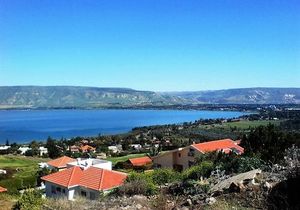Do you think much about heaven? The Bible is full of eternity and constantly points us to the last judgement and the great divide between heaven and hell.
God has ‘put eternity’ in our hearts (Ecclesiastes 3:11) and he calls us to think seriously about where we will spend it. He sent his only-begotten Son to save his people from their sins and bring to heaven ‘a great multitude which no one could number of all tribes, peoples and tongues’ (Revelation 7:9).
Plan A or Plan B?
Scripture refers to ‘heaven’ some 600 times. The New Testament is replete with references to the hope of heaven and the goal of glory, through saving faith in Jesus Christ.
Yet heaven is given little thought, even by Christians. We often treat it like social security – something that will be there when you need it. In theory it is our goal, but in practice it is God’s ‘Plan B’ for our lives.
Meanwhile we stick with ‘Plan A’ (enjoying this life) for as long as possible.

Some, of course, reject the hope of heaven as so much ‘pie-in-the-sky-by-and-by’. A. E. Houseman’s poem Ho everyone that thirsteth, takes its title from Isaiah 55:1 but wearily proceeds to dismiss the Scripture. He writes:
The lad that hopes for heaven
Shall fill his mouth with mould.
In other words, there is no heaven – only six feet of earth when we die. So get sinning while you have time!
Contrast this with Paul’s words to the Colossians: ‘If then you were raised with Christ, seek those things which are above, where Christ is, sitting at the right hand of God. Set your mind on things above, not on things on the earth’ (Colossians 3:1-2).
Clearly, God means us to think seriously and often about heaven and heaven’s Lord.
Common excuses
Most people think there is a heaven and that they are going there. Yet few reflect on the subject beyond these bare assumptions. Why such neglect? Here are some of the most common excuses.
Firstly, they complain, ‘heaven is weird and other-worldly’. They ‘buy’ the propaganda that you can be ‘so heavenly-minded, that you’re no earthly use’. Heaven is just not very practical. Never mind that Scripture teaches the very opposite!

Secondly, ‘heaven is boring’. We accept the cartoon caricature – folks in white robes with haloes, sitting on clouds and playing harps for ever: even more tedious, some might say, than going to church for a million years!
Thirdly, ‘heaven is too hard to think about’. Where is it? How does it work? What do you do? How do you get there?
Yes, Jesus went up to heaven, but it is hard to understand how. Besides, we have too much to do right here and now. Let’s think about it later!
The real problem
The real problem, of course, is none of the above. It is that we are too tied to this life. The rich man in Jesus’ story in Luke 12:16-21 is a classic case.
He was too busy getting rich to think of heaven (or hell) or even God himself. It is only too easy to ‘walk by sight’ when we should ‘walk by faith’ (2 Corinthians 5:7).
We are alive, we are healthy and we have a life to live. In spite of its problems, this world appeals to us.
Death and eternity seem far away – that is, until the day comes (as it will) when, like the rich fool, we will hear God say: ‘This night your soul will be required of you’ (Luke 12:20).
If even Christians think this way, how much more the unconverted? To them the claims of Jesus are offensive and the prospects of facing a righteous Judge are just too awful to contemplate.

It is small wonder that, like the rich fool in Jesus’ parable, millions just put up the shutters of their hearts and minds. We blot out the light of God’s Word as it calls us to think on these things.
Happy the way we are, we do the ‘Felix thing’ and put it off for a more ‘convenient time’ – the tomorrow that never comes (Acts 24:25).
Life is brief
Yet thinking about heaven really makes sense, and the reasons are pretty obvious. Let me ask two questions.
Are you going to live here for ever? You know the answer to that one! So, where will you spend eternity?
When people flocked to John the Baptist, he got to the point right away, asking: ‘Who warned you to flee the wrath to come?’ (Luke 3:7).
He then emphasised repentance and the fruits of a holy life. He charged them not to deceive themselves that they were right with God just because they went through certain religious motions.
Here, then, is the ‘bottom line’: being born makes you fit for hell, but to be fit for heaven you need to be born again! There is only one name ‘under heaven given among men by which we must be saved’. And that name is Jesus Christ (Acts 4:12).

False hope
The easiest thing in the world is to trust in a false hope: to assume, as most people do, that God is too nice to put decent folks like you in hell. Scan the horizon of our culture and you find that belief in universal salvation is the norm.
Dead celebrities (if we are to believe the tearful testimonies of their friends) are watching us benignly from heaven, however unbelieving or immoral their past lives. If singing The Lord’s my Shepherd at funerals conveyed grace to dead sinners, no one would be lost!
It begs the question people don’t want to ask about the departed one: ‘Was the Lord Jesus Christ his Shepherd?’ Do the comforts of Psalm 23 apply to all and sundry?
The answer of God’s Word is too painfully obvious. But people will cling to false hopes rather than cling to Christ himself.
Live and grow
Are you already a Christian? Then understand that you will never be more fit to live on earth, than when you are fit to live in heaven.
In our human nature, God put eternity in our hearts. But in our new nature in Christ, he puts heaven there. See how Paul unfolds this in Colossians 3:1-4.
In the first place, when we trust savingly in Christ, we have a new purpose (vv. 1-2). We have eternal life now, being ‘raised with Christ’ to newness of life! Therefore, we will focus on the heavenly things of Christ – things ‘above’ as opposed to ‘earthly’ things.

We also have help, because Christ is ‘sitting at the right hand of God’. He is the King who reigns over all things in the interests of his people (Ephesians 1:20-22).
All this adds up to a heaven-orientated mind-set in those who are truly united to Christ by faith. They ‘think’ heaven, ‘think’ Jesus, ‘think God’, and ‘think’ eternity into the time in which they live.
Priorities and promises
Secondly, therefore, Christians have new priorities. ‘For you died and your life is hidden with Christ in God’ (v. 3). Sin as a ruling enslavement has been put to death.
The ‘old man’ died and earthbound priorities died with him. Your new life is with Christ in God. You are a new creation, with a new source of life, a new direction, new motives, new desires, and a new vision for time and eternity.
Thirdly, we also have a new promise. Christ is our life. So when he appears at the end of history, we also ‘will appear with him in glory’ (v. 4). What a prospect!
This is not heaven as Plan B! No, this is God’s glory revealed and Christ exalted as a Prince and a Saviour.
This is reality, the real goal and eternal destination of the redeemed. This is heaven as Plan A – the true and ultimate home of the Lord’s believing people, in heart, soul and mind.

This heaven, even today, is the basis of my world-view and my eternal joy.
The future in the present
God wants us to live out this wonderful future in the present. Paul speaks of the awesome mystery of heaven in 1 Corinthians 2:9-10, quoting Isaiah 64:4 and 65:17: ‘Eye has not seen, nor ear heard, nor have entered into the heart of man the things which God has prepared for those who love him’.
But he does not stop with this statement of relative ignorance. He continues: ‘But God has revealed them to us through his Spirit. For the Spirit searches all things, yes, the deep things of God’.
Alive in Christ, and walking in the Spirit, we are called and equipped to be so heavenly-minded that we will be of great earthly use.
We need to know more of heaven, more of glory, more of Christ. Let us then seek – and set our minds – on things above, where Christ is. Then we will live and labour in Christ’s kingdom here, as those whose home is heaven.

















